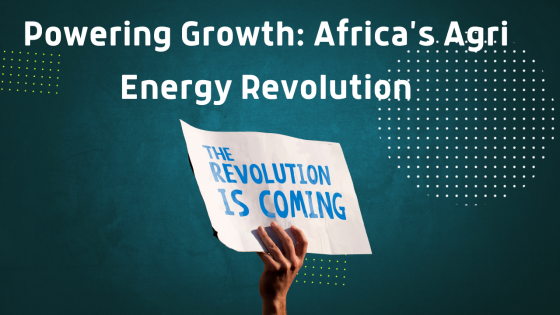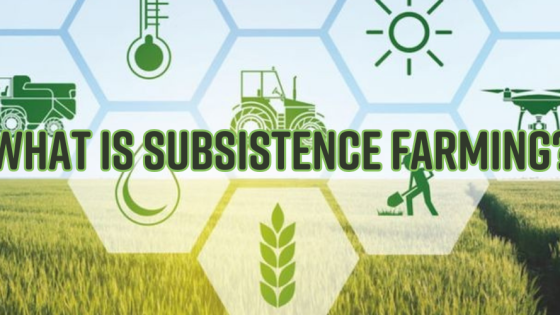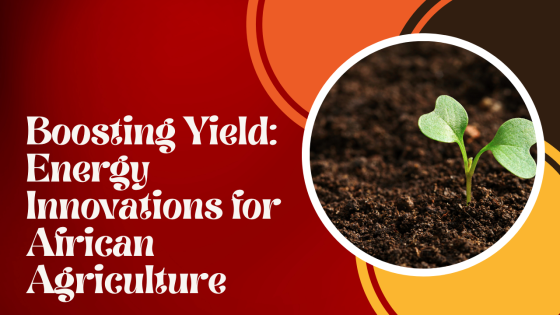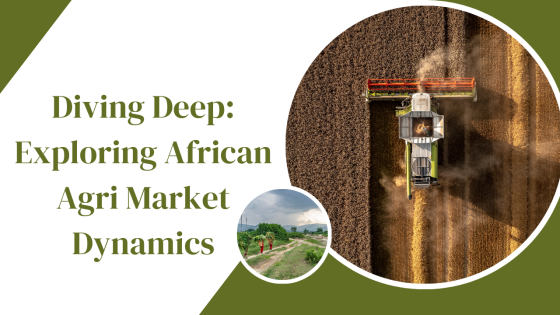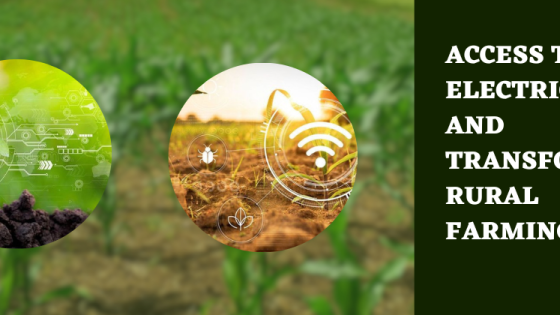
Discover how renewable energy is revolutionizing African agriculture, boosting farmers’ livelihoods, and driving sustainable development across the con
In the heart of Africa, a silent revolution is taking place. It’s not the stuff of headlines, but its impact is profound. We’re talking about the transformation of agriculture through sustainable energy. In this article, we’ll delve into how renewable energy solutions are breathing new life into African farming, bolstering the livelihoods of millions, and paving the way for a greener, more prosperous future.
The Power of Sustainable Energy in Agriculture
When we think of agriculture in Africa, the image that often comes to mind is one of hardworking farmers toiling under the sweltering sun, tilling their fields with traditional tools. While this image is still a reality in many parts of the continent, a remarkable change is underway. Renewable energy has emerged as a game-changer, providing a lifeline to African farmers and the agricultural sector as a whole.
Turning Sunlight into Opportunity
Africa is blessed with abundant sunlight. And with the advent of solar power technology, this sunlight is being harnessed like never before. Solar panels, strategically placed on farms and rural communities, are converting sunlight into electricity. This energy is used to power water pumps for irrigation, lighting for homes and barns, and even to charge farm equipment.
Did you know? In Burkina Faso, solar-powered irrigation systems have allowed farmers to cultivate crops even during the dry season, reducing their reliance on unpredictable rainfall.
Winds of Change: Wind Energy in Agriculture
While solar energy takes center stage, the power of the wind should not be underestimated. Wind turbines are now a common sight on African farms. They generate electricity that can be used for various purposes, from powering grain mills to running cold storage facilities.
Link: Wind Energy in Africa
Biomass and Biogas: Sustainable Fuel for Cooking and More
In many African households, cooking is still done over open fires, resulting in indoor air pollution and deforestation. However, renewable energy solutions like biogas and biomass are changing this narrative. Farmers are converting organic waste into clean-burning biogas, providing a safer and more sustainable cooking option.
Link: Biogas in Africa
A Ray of Hope: Solar Drying and Food Preservation
Post-harvest losses have long plagued African farmers. However, solar drying and food preservation technologies are helping farmers extend the shelf life of their produce. Solar dryers are used to preserve fruits, vegetables, and grains, reducing waste and increasing income for smallholders.
Link: Solar Drying Technology
Policy Matters: Creating the Enabling Environment
The success of renewable energy in African agriculture is not a stroke of luck but the result of deliberate policy measures. Governments across the continent have recognized the potential of sustainable energy in agriculture and have taken steps to promote its adoption.
Incentives and Subsidies
To encourage farmers to embrace renewable energy solutions, governments are offering incentives such as tax breaks and subsidies. These measures make solar panels, wind turbines, and biogas digesters more affordable for farmers.
Did you know? In Kenya, farmers can access government grants to install solar-powered irrigation systems, making farming more efficient and sustainable.
Rural Electrification Programs
Access to electricity is not only essential for farming operations but also for improving the overall quality of life in rural areas. Many African governments are investing in rural electrification programs, ensuring that even remote farming communities have access to clean and reliable energy.
Link: Rural Electrification in Africa
Collaborations and Partnerships
Governments are partnering with international organizations, NGOs, and private companies to expand access to sustainable energy solutions. These collaborations facilitate technology transfer, knowledge sharing, and capacity building among farmers.
Link: International Partnerships for Sustainable Energy in Africa
The Farmer’s Perspective: Real Stories of Transformation
To truly understand the impact of sustainable energy in agriculture, let’s hear from the farmers themselves.
Case Study 1: Mary’s Solar-Powered Success
Mary, a smallholder farmer in Nigeria, used to rely on unpredictable rainfall for her crops. Thanks to a solar-powered irrigation system, she can now cultivate her land year-round. This not only ensures food security for her family but also generates surplus income by selling her produce.
Case Study 2: Joseph’s Wind-Powered Flourishing
Joseph, a farmer in Tanzania, had struggled with grinding his maize into flour. With the installation of a wind-powered grain mill on his farm, he not only reduced the physical labor but also increased the quality and quantity of his flour production.
Case Study 3: A Community Transformed by Biogas
In a remote village in Uganda, the introduction of biogas digesters has changed the lives of the entire community. No longer do women and children have to collect firewood for cooking. Now, they have clean biogas for cooking and lighting, improving their health and freeing up time for other activities.
FAQs: Addressing Common Questions
Q1: Is renewable energy affordable for African farmers?
A1: Yes, thanks to government incentives and subsidies, renewable energy solutions are becoming more affordable and accessible for farmers across Africa.
Q2: How does renewable energy benefit the environment?
A2: Renewable energy reduces greenhouse gas emissions, promotes sustainable land use, and helps combat deforestation, contributing to a healthier environment.
Q3: Are there any challenges to adopting renewable energy in African agriculture?
A3: While progress is being made, challenges such as financing, technical know-how, and infrastructure gaps still exist. However, concerted efforts are addressing these issues.
A Brighter Future
In conclusion, the marriage of agriculture and sustainable energy is a union that holds immense promise for Africa. It’s a union that empowers farmers, boosts food security, and mitigates climate change. As governments, organizations, and communities continue to invest in renewable energy solutions, we can expect to see even more remarkable transformations in the years to come.
So, the next time you picture African agriculture, don’t just envision the sweat and toil; think of solar panels glistening in the sun, wind turbines spinning gracefully, and biogas digesters quietly converting waste into energy. It’s a new dawn for African agriculture, and sustainable energy is leading the way.



